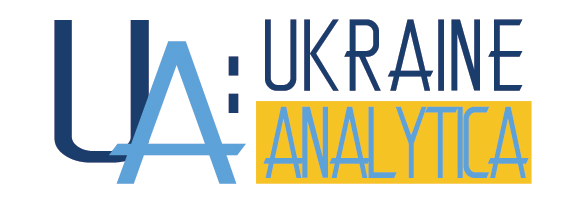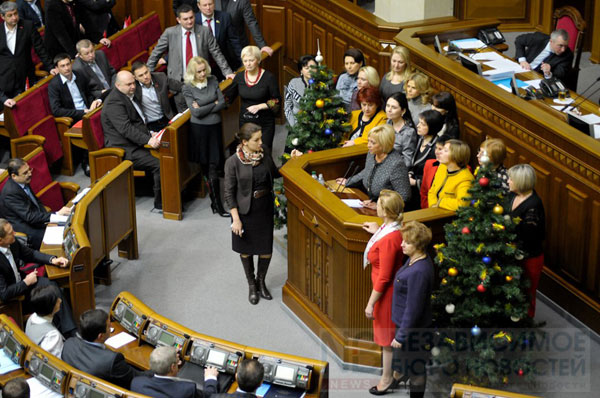Interview with Mariia Ionova, Member of the Parliament of Ukraine
Is There Gender Inequality in Ukrainian Politics?
There is and there is not. Ukrainian politicians do not deny gender equality in public; however, some of them still adhere to patriarchal values.
Article 24 of the Constitution of Ukraine claims all citizens equal, also by gender. At least ten laws and other legal acts contain norms outlining the forming and carrying out of gender policy in Ukraine. However, we still observe examples of inequality in everyday life. It is also true about the country’s politics. So far, Ukraine ranks 143rd in the world by the number of women taking part in state decision-making.
At the same time, there is undoubtedly some progress in building equality between males and females. One should take into account that a process of change has been initiated and is underway in Ukraine. Changes are comprehensive. Some politicians are still afraid of the very word “gender” to the point where they try to withdraw it from draft laws. However, in some ministries and state administrations gender-motivated budgeting has been initiated, while the Chairman of the Ukrainian parliament Andriy Parubiy indicated his intention to promote forming a gender-sensitive parliament.
In my view, it is the political area where progress towards gender equality is the greatest comparing to other spheres of social life in Ukraine. These achievements are not very impressive so far. For instance, in a presidium of the parliament, which used to consist of males, there are currently two female deputy chairpersons, representing different political parties, next to the chairman, Mr. Parubiy.
There are 12% of women among current members of the Parliament of Ukraine. For sure, that is not enough, given that women comprise about 54% of the population of Ukraine, but that is more than used to be before. At the same time that is 2.5 times less than Ukraine should have achieved by 2015 in accordance with the UN Millennium Goals. The share of women in the parliament started to rise in 2002. The following data are applicable:
- 1st convening – 1990-1994 – 13 female MPs, which is 2.8%
- 2nd convening – 1994-1998 – 19 female MPs, which is 4.2%
- 3rd convening – 1998-2002 – 39 female MPs, which is 8.4%
- 4th convening – 2002-2006 – 28 female MPs, which is 6.2%
- 5th convening – 2006-2007 – 41 female MPs, which is 9.1%
- 6th convening – 2007-2012 – 42 female MPs, which is 9.3%
- 7th convening – 2012-2014 – 43 female MPs, which is 9.6%
- 8th convening – 2014 – present – 51 female MPs, which is 12.1%
Recently, the number of females in the Ukrainian government has increased. For instance, for the first time in Ukrainian history a female, Ivanna Klympush-Tsintsadze, has become a vice prime minister, responsible for European and Euroatlantic integration of the country. Moreover, it is possible that she will be appointed the parliament’s representative in the government responsible for equality of rights of men and women. Also for the first time.
Ministers of Healthcare and Education and Science, Ulyana Suprun and Liliya Grynevych, are implementing important reforms. They literally manage to break old stereotypes pertaining to lives of Ukrainians, aiming at fighting corruption and improving quality of life.
There are also more women at a local level. On the negative side, there is a specific trend: The higher the level of decision-making, the more difficult it gets for women to be elected. The stairway looks like this:
- Villages’ councils – 47% of women
- District councils – 25%
- City councils (Kyiv and major cities) – 18%
- Oblasts’ councils – 15%
- The Parliament – 12.1%
How Is the Issue of Gender Perceived in Ukraine?
Every tenth Ukrainian experiences gender discrimination, with women facing it more often than men do. As one of the recent surveys conducted by the Razumkov Center and titled “Gender Equality and Development: A Look within the Context of European Strategy of Ukraine” reflects, almost 53% believe there is no gender discrimination in Ukraine. Sociologists make a conclusion that the problem of gender inequality has not been actualized. Both women and men agree that overall women are somewhat less socially protected. But this is not perceived as gender inequality, i.e. there is no conflict.
81% believe women’s presence in state power is necessary. However, despite such optimism and a favourable social mood, only once in Ukrainian history a woman headed the government, while there is only one female judge in the Constitutional court, out of eight overall. 51% suggest that Ukrainian officials do not pay enough attention to women’s needs.
In recent years, due to Russia’s occupation of Crimea and aggression in Donbas, Ukraine has been facing another serious problem – status of women in zone of conflict. As research suggests, Ukrainian media ignore problems of women staying in warzones. Gender violence is almost out of coverage. As a result, the problem falls out of focus of civil society and has never been listed among the most urgent ones.
In Which Ways Are Women Effectively Contributing to Peace-making Efforts?
UNSC Resolution 1325 points out that women’s life experience is of great importance for preserving international peace and security. Experience of NATO member states opens way for implementing positive practices in gender culture in the security sector. The Equal Opportunities Caucus, in which I am a co-chairperson, has been established in the Ukrainian parliament. One of its key tasks is securing equal, comprehensive, and active role for women in preventing and managing conflicts. With the promotion by the caucus, a national plan for Resolution of UNSC 1325, “Women, Peace, Security”, has been approved till 2020. The plan aims at an increase in numbers of women working in security and defence sectors. The Caucus is also carrying out parliamentary supervision of the National Action Plan in Ukraine’s Army, Joint Staff, as well as assists in preventing and countering gender (including sexual) violence in the East. It also encourages gender approach in the Strategy of Recovery of Donbas, holds information events that draw attention to the role women play in defending the country and sustaining peace, as well as supports the rights of women undergoing military service.
The Equal Opportunities Caucus has created a civil board for gender issues, within which a working group on Security and Peace-making was established. I have the honour to head this group, coordinating activities of governmental, international, and non-governmental partners.
Close cooperation with the Ministry of Defence of Ukraine, Joint Staff, international and Ukrainian experts for securing equal rights and opportunities for women in the army is among our achievements. The Ministry of Defence issued an order extending the list of positions women can hold within the army and that was one of our positive achievements. Moreover, we offer steps to re-establish the institute of advisors on gender issues in the security sector, providing them with institutional and functional capacities, exploring experience of NATO member states, and introducing a positive practice in gender culture within the security sector.
As far as specific practical contributions are concerned, hundreds of women turned volunteers as a response to aggressive military activities by Russia in Donbas. They help providing the army with what it needs. One of the members in a group of negotiators in Minsk is a Member of Parliament, the first deputy head in the Rada and the President’s envoy for peaceful settlement of the conflict Iryna Geraschenko.
Women And Army Service: What Is Your Opinion on That Combination?
Time changes stereotypes. Purely male features – physical abilities, combat skills – have been needed for an army service before, but now the environment puts forward different demands. In my opinion, a woman has a right to choose. If she picks army service as a profession, nothing should prevent her from doing that. Basic criteria for military service should include health fitness, age validity, and professional qualities, but not gender. I am sure that the legislature should address only the protection of women’s reproductive health and motherhood. Any other limitations on military service for women should be treated as signs of discrimination.
Currently Ukrainian laws do not carry any direct limitations on women’s military service, with the exception of the Law on Military Duty and Military Service, which states that only male citizens are called upon for compulsory military service. That means women may only be contracted for military service. Currently there are almost 20 thousand women in the army. The Ukrainian military is still conservative and unfriendly to women. Only 2.5 thousand female Ukrainians in the army are officers. Here is another prominent figure reflecting the huge potential of Ukrainian women: during the Revolution of Dignity at the Maidan, about 45% of the people were females.
My colleagues, members of Parliament from the Equal Opportunities Caucus, and I are aiming to change the stance. Successful results have already been achieved. Last year, the Ministry of Defence of Ukraine introduced changes to a list of positions that may be available for women. Since then, 63 positions more have been open for women serving in the Ukrainian Army under a contract. The overall list of positions of soldiers, sergeants, and petty officers to which women can be appointed increased to 290. However, still two thirds of positions in the Ukrainian Army are unavailable for women. I cannot find a logical explanation of why a woman in the army cannot serve as a sports instructor, hand-to-hand fighting coach, platoon commander, photographer, etc.
The Cabinet of Ministers of Ukraine approved a national action plan to implement UNSC Resolution 1325, “Women, Peace, and Security”, for the period till 2020. It aims to increase the number of women in defence and security sectors by 10%. I believe this is well within reach and will try to ensure parliamentary control. NATO serves as an example for further reforming of national legislature in what concerns equality of men’s and women’s rights in security and defence fields.
What Are the Best Ways to Secure Gender Balance in Power?
One of the ways to change things for the better is through voluntary gender party quotas, which are quite popular in EU countries and have been introduced there since the 1970s.
In 2000, Ukraine pledged to have 30% of women in the parliament by 2015. A number of attempts to introduce such gender quotas in legislature have been taken. Finally, it has been adopted in the 2015 local elections; however, almost no party followed it. Thus, we are facing a task of defining sanctions for violating legislative norms. Nevertheless, things with gender balance have improved in the 2015 local elections comparing to previous ones, especially in city and district councils. Thus we started moving towards European standards.
Adopting legislative norms regulating parliamentary elections is the task ahead. I hope a norm of 30% or even 40% of women in electoral lists will be compulsory. Otherwise, political parties will not stand a chance of being elected to parliament, or even to a small local council.
To make political parties include more women through legislative measures is the first and reluctant step. We should be aware of the fact that this issue is not only about the top level of politics and legislature, but also touches upon deep relations within a society, values, traditions, views, and orientations. Thus, a gender quota will only be a temporary measure to get Ukrainian society used to what has for half a century been a norm in Western countries, defining the level of democracy and quality of life.



